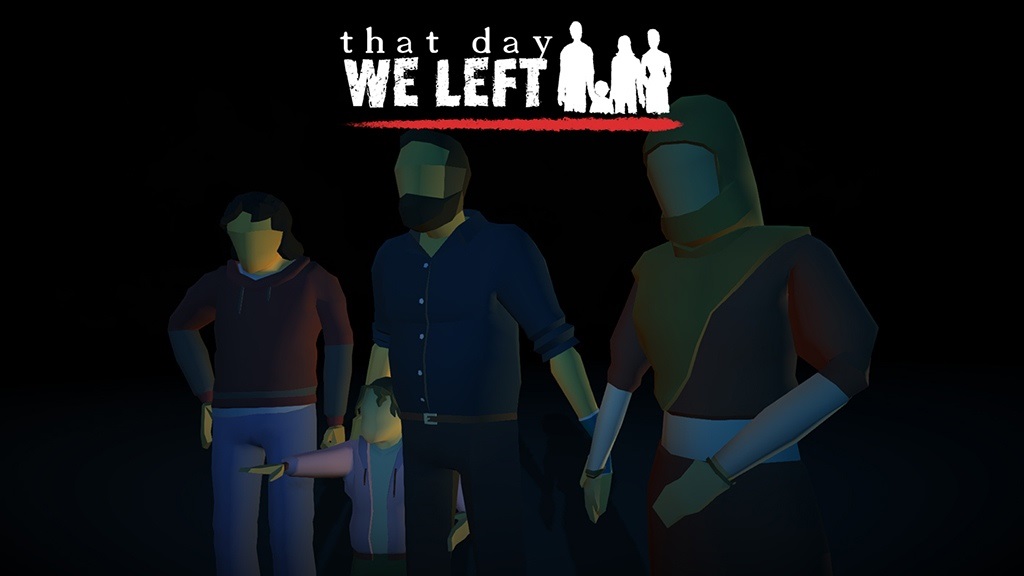At this very moment in Syria, a family’s home is being bombed. A sniper is gunning down a child, or maybe a journalist is getting beheaded. Innocent people are dying everywhere, and many more are losing their homes. They have nowhere to go, so they turn to Europe for help. But more and more, Europeans are resisting, protesting and demanding their politicians not let them into their country.
They label refugees as terrorists and savages. Many of these refugees have nothing but the clothes on their backs, and risked their lives trying to cross the Mediterranean Sea to get to Europe. A majority of them aren’t criminals, but because one or two commit crimes, the whole lot is evil. Meanwhile, you’re likely reading this article on a $1,000 computer in the comfort of your home. Maybe you’re sitting on an expensive leather chair too.
How do you reconcile with that?
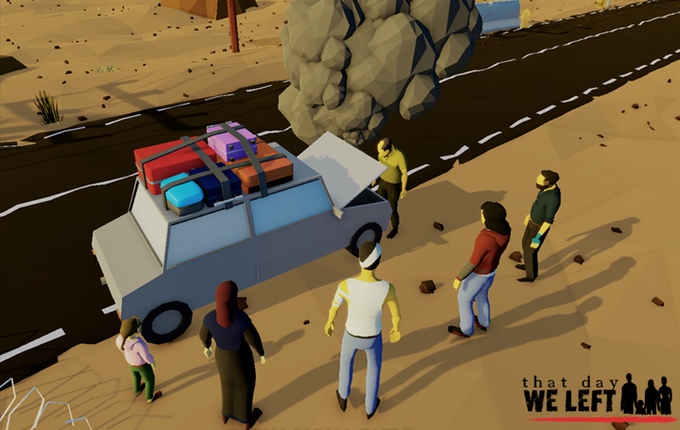 It’s an uncomfortable question. It’s one of many That Day We Left was trying to ask dealing with the refugee crisis. But now those questions will fall on deaf ears. The once promising Kickstarter campaign is now over due to lack of backer support.
It’s an uncomfortable question. It’s one of many That Day We Left was trying to ask dealing with the refugee crisis. But now those questions will fall on deaf ears. The once promising Kickstarter campaign is now over due to lack of backer support.
It’s impossible to point to any one thing as the definitive reason That Day We Left couldn’t find an audience. Maybe developer Inner Void Interactive didn’t promote it well, the gameplay didn’t appeal to people, or most potential backers didn’t like Inner Void’s own political apathy.
There’s something to be said about comfort and video games though. How often do we hear the term “escapism” when it relates to gaming? Simply by looking at what’s popular, both in the AAA space and on Kickstarter, you find that most successful games feature escapism. Who wants to play a game putting you in the middle of a politically charged, bloody quagmire?
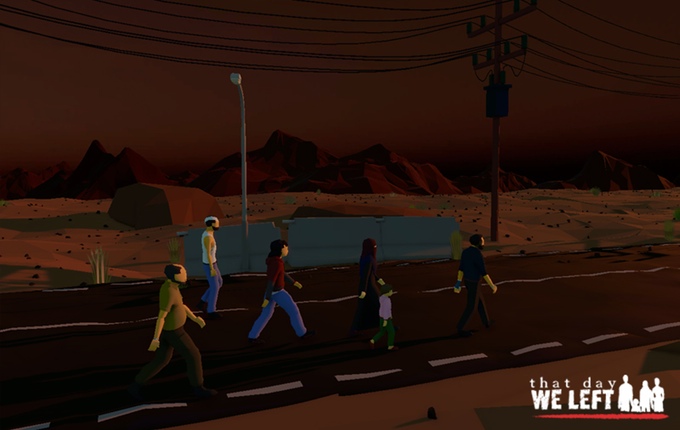 The Middle East is not an unfamiliar topic to many westerners. For every one person who associates the term with a region full of diverse, rich history, there are probably three others who only think “terrorists.” That makes any piece of media set in the region a difficult sell. If it’s not about ‘Murica charging in with freedom in hand, people will have a hard time dealing with it.
The Middle East is not an unfamiliar topic to many westerners. For every one person who associates the term with a region full of diverse, rich history, there are probably three others who only think “terrorists.” That makes any piece of media set in the region a difficult sell. If it’s not about ‘Murica charging in with freedom in hand, people will have a hard time dealing with it.
1979 Revolution is another high profile Kickstarter project that took a nuanced look at the region with a game set during the Iranian Revolution. You play a journalist in Tehran at the start of the conflict which toppled Iran’s pro-American government. Despite a huge media campaign and high-profile people working on it, the Kickstarter fell about $90,000 short. With the help of outside investors, it did eventually see the light of day. But its failure on Kickstarter was a grim sign.
Fast-forward to That Day We Left’s debut, and that lack of interest has turned into anger. Negative and offensive comments about refugees and Muslims savaged the comment section of the first trailer. Jokes about raping children and statements about how they’re all terrorists litter the forum. When Jim Sterling made a video about the game he had to disable comments. You can guess why. He didn’t mention politics anywhere in the video.
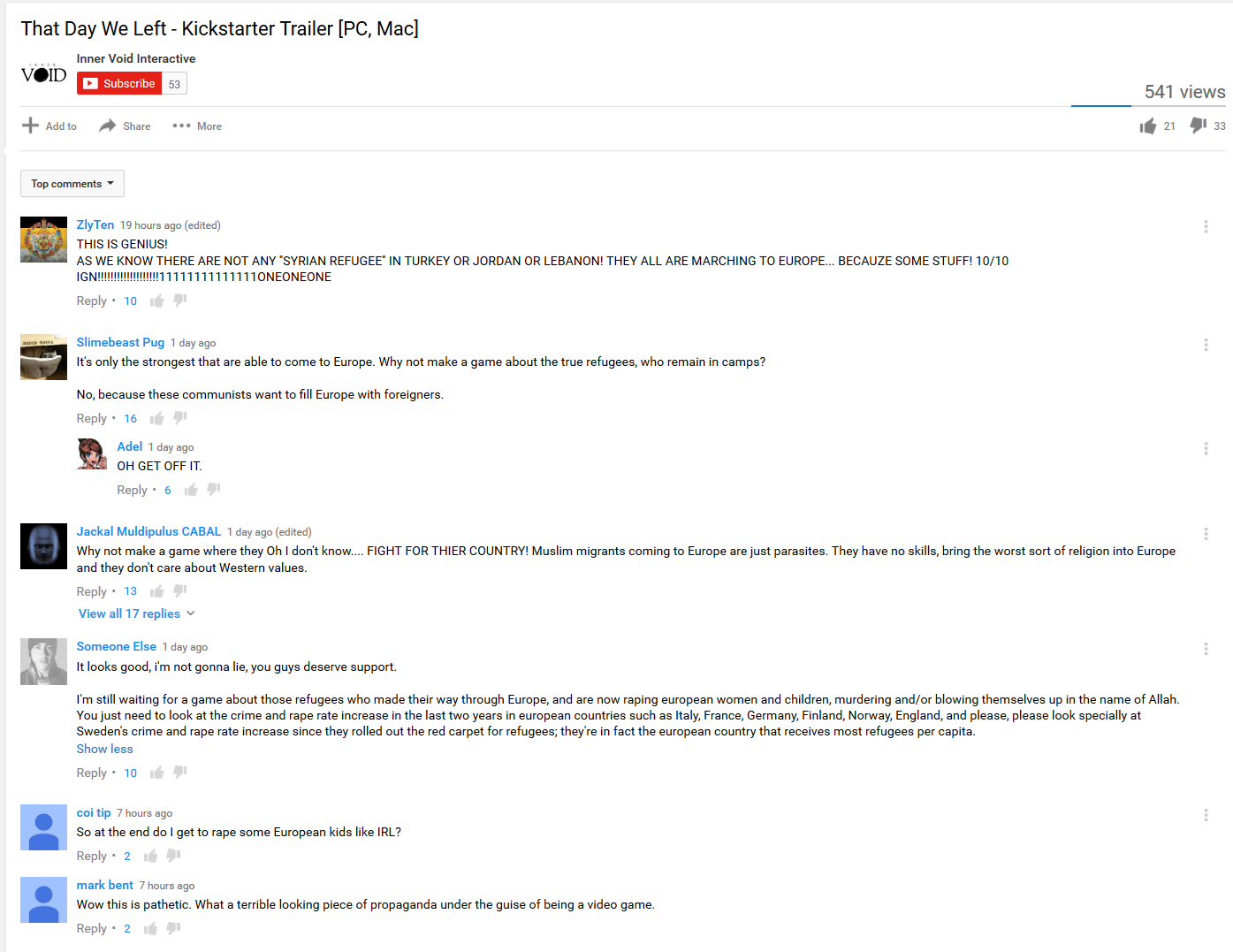
Successful games raising similar questions like Mainlining or This is the Police hit closer to home. They often involve topics with a more common consensus too. Not everyone agrees government spying is an issue or that police brutality exists. The people who use Kickstarter most, Americans and Europeans, are more familiar with and in agreement on those issues than they are of Middle Eastern conflicts.
That Day We Left failed on Kickstarter the same reason it failed to find a traditional publisher: People don’t want to leave their comfort zone. They don’t want to play a game about war refugees any more than they want to hear news suggesting Syrian refugees aren’t all rapists and terrorists. That’s a shame for many obvious reasons.
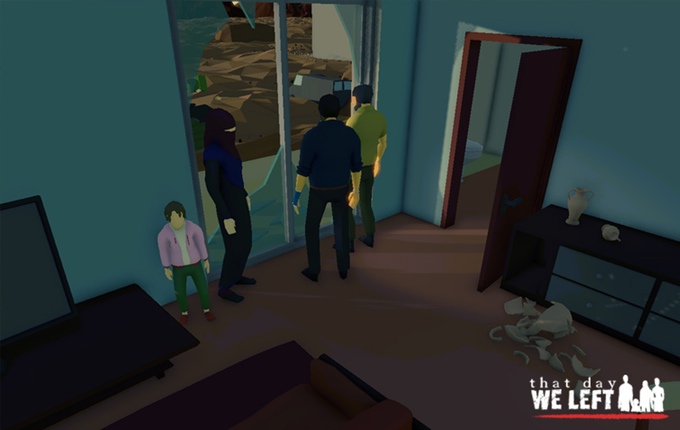
Kickstarter allows creative people a chance to make creative content traditional publishers and investors didn’t want to touch. These endeavors deemed too political, or not popular enough, or an investor too uncomfortable with their themes. Crowdfunding lets the audience decide what gets made. Backers hold their heads high at the idea they’re more adventurous and willing to take risks.
Seeing That Day We Left and 1979 Revolution fail because they ask uncomfortable questions, what are we to think? Are Kickstarter backers just as risk averse as those publishers we derided for years? Do we refuse to take an honest look at the world because we don’t like what we might find? Are we going to lash out in anger because we simply don’t want to know?
